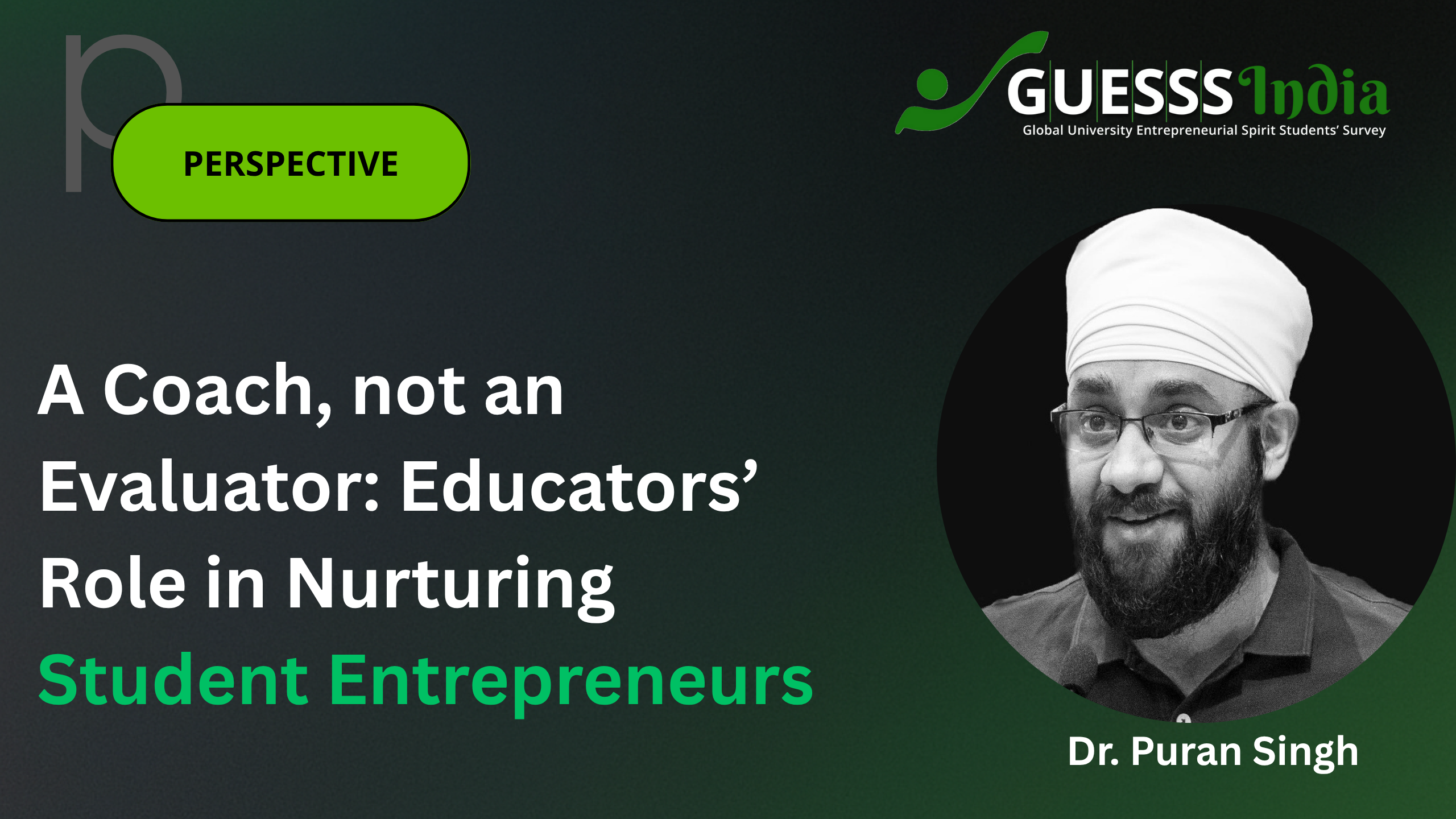In today’s rapidly evolving entrepreneurial landscape, educators hold the key to unlocking the potential of student entrepreneurs. With India’s booming startup ecosystem and increasing emphasis on innovation, the role of educators must evolve from being mere evaluators to becoming coaches and mentors who nurture entrepreneurial thinking. Traditional academic models that rely on rigid curricula and theoretical frameworks often fail to equip students with the practical skills needed to navigate the uncertainties of entrepreneurship. Instead, educators must embrace experiential learning, allowing students to explore, experiment, fail, and iterate as they transform ideas into viable business ventures.
The traditional role of educators has largely been to assess students based on predefined criteria. While this works well in structured disciplines, entrepreneurship is inherently dynamic and requires a different approach. When student entrepreneurs are subjected to conventional evaluation methods, they may be discouraged by rigid assessments that fail to account for the iterative nature of startup development. Instead of merely grading ideas or business plans, educators must act as coaches who guide students through the complex process of venture creation.
Coaching, rather than evaluating, fosters a mindset of continuous learning. A coach does not provide direct answers but instead asks the right questions, encouraging students to think critically and solve problems creatively. This shift in approach helps students develop resilience, adaptability, and problem-solving skills – all crucial traits for entrepreneurial success. Furthermore, by adopting a coaching mindset, educators can create an environment where students feel safe to take risks, fail, and learn from their mistakes without the fear of punitive judgment.
One of the most effective ways educators can support student entrepreneurs is by integrating the Lean Startup methodology into their teaching practices. Developed by Eric Ries, the Lean Startup framework emphasizes rapid experimentation, validated learning, and iterative development. This approach aligns well with the unpredictable nature of startups, where initial ideas often require multiple refinements before achieving product-market fit.
By incorporating Lean Startup principles into entrepreneurship education, educators can help students move away from rigid business planning and towards a more dynamic, hypothesis-driven approach. Students should be encouraged to test their ideas with real customers, gather feedback, and pivot based on data rather than assumptions. This practical exposure helps bridge the gap between academic concepts and real-world applications, making entrepreneurship education more effective and impactful.
Books such as The Lean Startup by Eric Ries and The Lean Product Playbook by Dan Olsen provide valuable insights into this methodology. Additionally, educators can introduce tools like the Problem Statement Canvas and Business Model Canvas to help students structure their startup ideas and iterate efficiently.
Beyond coaching, educators must also serve as enablers of the broader startup ecosystem within academic institutions. Many universities now have incubation centers, yet only a fraction of student entrepreneurs actively engage with these resources. Educators can play a pivotal role in bridging this gap by fostering stronger connections between students and incubators, mentors, and industry professionals.
The impact of entrepreneurship education is not measured by the number of successful startups alone but by the development of individuals who think entrepreneurially, whether they launch their own ventures or drive innovation within organizations. By reimagining their role, educators can shape a generation of entrepreneurial leaders poised to make a lasting impact on India’s economic and innovation landscape.



7 Responses
What’s the deal with bbjljl? Is it just another clone site, or does it have anything special going on? Let a brother know.
Si te late jugar en línea, MX777Casino podría ser tu próximo destino. Echale un ojo a los juegos que ofrecen y a ver si te animas mx777casino. ¡Suerte!
It’s very easy to find out any topic on web as compared to textbooks, as I found this piece of writing at this website.
Wow, this paragrazph iss pleasant, myy sistsr iis analyzsing thdse things, sso I amm going tto llet knnow her.
Hi, i feel that i noticed you visited my weblog thus i got here to “return the favor”.I am trying to find things to improve my site!I guess its adequate to make use of a few of your concepts!!
Thanks designed for sharing such a good opinion, piece of writing is fastidious, thats why i have read it entirely|
I’ll immediately seize your rss feed as I can’t find your e-mail subscription hyperlink or e-newsletter service. Do you’ve any? Kindly let me realize so that I may just subscribe. Thanks.